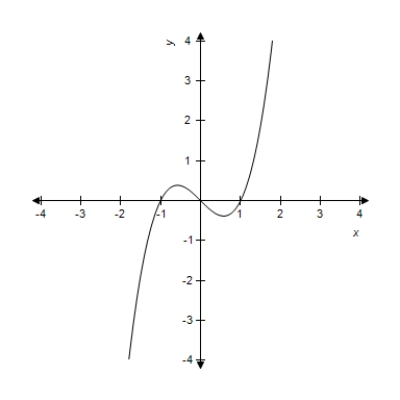Determine whether the given graph is the graph of a polynomial function, a rational function (but not a polynomial) , or a piecewise defined function. Use the graph to estimate the turning points. Round your answers to two decimal places. 
A) polynomial function
Turning points:  and
and 
B) rational function
Turning points:  and
and 
C) polynomial function
Turning points:  ,
,  , and
, and 
D) rational function
Turning points:  ,
,  , and
, and 
E) piecewise function
Turning points:  and
and 
Correct Answer:
Verified
Q87: Determine whether the given graph is the
Q88: The demand function for a product is
Q89: Determine whether the scatter plot should be
Q90: By recognizing shapes and features of polynomial
Q91: The demand function for a product is
Q93: A shipping company's charges for delivery of
Q94: Find the rational function whose graph is
Q95: The given graph shows the cost C,
Q96: Suppose that the cost C (in dollars)
Q97: By recognizing shapes and features of polynomial
Unlock this Answer For Free Now!
View this answer and more for free by performing one of the following actions

Scan the QR code to install the App and get 2 free unlocks

Unlock quizzes for free by uploading documents